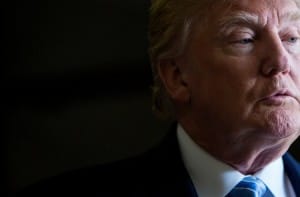
Trying to Read Donald Trump, in Translation
 You would think that if the leader of a country friendly to America likened a serious contender for the American presidency to two of the premier villains of the 20th century, it would set off an uproar.
You would think that if the leader of a country friendly to America likened a serious contender for the American presidency to two of the premier villains of the 20th century, it would set off an uproar.
But Donald Trump has so debased the tone of the presidential race that there was hardly a murmur when President Enrique Peña Nieto of Mexico did just that this week. Not only was there no way Mexico would pay for Mr. Trump’s wall along the border, but that sort of demagogy, Mr. Peña Nieto said, was “how Mussolini got in, that’s how Hitler got in.”
That may be a natural reaction given all the hatred Mr. Trump has hurled at Mexico. But Mr. Peña Nieto is not alone among people around the world increasingly frightened by the irresponsible and ignorant pronouncements of a man who could be the Republican nominee. Mr. Trump won at least two more states, Michigan and Mississippi, on Tuesday.
In January, the British Parliament held an extraordinary debate on whether to bar Mr. Trump from Britain on the grounds that his comments about Muslims amounted to “hate speech” (no vote was taken). Last week, Mr. Trump’s exercise in Japan-bashing set off panic in the Japanese Foreign Ministry. In China, his vacillation between proclamations of “love” for the Chinese and fiery pledges of stern action against China for “ripping us off” has left experts and politicians scratching their heads. At least one foreign government tried to learn more about Mr. Trump’s policy positions by making direct contact with his campaign, but has been unable to figure out who is the authoritative channel, one diplomat told The Times.
Spleen and grievance are at the core of Mr. Trump’s thinking about the world. China, Japan, Mexico, Europe all must be made to stop exploiting America’s economy, he says; allies must be made to pay more for American protection; borders must be made impermeable to drug dealers, rapists and criminals. The rest is a swirl of instinctive reactions: He welcomes Russia’s military intervention in Syria; he would “bomb the hell” out of ISIS in Iraq; he’d resume waterboarding; he’d keep Guantánamo open.
For Mr. Trump’s supporters, such talk amounts to “saying it like it is” and promises to somehow “make America great again.” For America’s closest allies in Europe, who have long counted on the United States to be an anchor of liberal democracy, such talk conjures only alarm. They know from their own difficult experience, both past and present, what to expect of fascistic and xenophobic leaders who appeal to the worst impulses. “Whether Donald Trump, Marine Le Pen or Geert Wilders — all these right-wing populists are not only a threat to peace and social cohesion, but also to economic development,” Vice Chancellor SigmarGabriel of Germany told the newspaper Welt am Sonntag.
Ms. Le Pen, who has compared Muslim street prayers to the Nazi occupation, is the leader of the far-right National Front party in France, which campaigns mostly on anti-immigrant policies. Mr. Wilders, head of the Dutch far-right Party for Freedom, has also raged against Islam and demanded a ban on the Quran. Some Europeans also see Mr. Trump’s reflection in Silvio Berlusconi, the former Italian prime minister and wealthy businessman who embarrassed and harmed his country’s reputation with his quips about Mussolini, his vulgar behavior and his destructive policies.
Dealing with an enormously complex and dangerous world is a major responsibility of the president of the United States. And that is why to Mr. Peña Nieto and many others Mr. Trump’s rise is so significant and distressing.